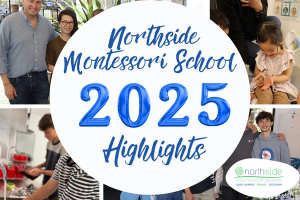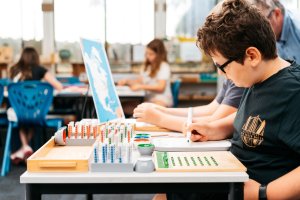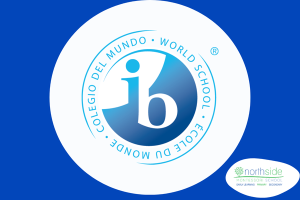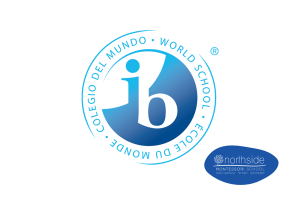What does tech genius Jeff Bezos, Academy Award-winning actor George Clooney, Nobel Prize-winning novelist Gabriel Garcia Marquez and Grammy-winning singer Taylor Swift all have in common?
They all attended Montessori schools from a young age, which helped pave the foundation for their success.
The Montessori method is a child-focused way of learning that puts kids at the centre of their own education. Instead of following a one-size-fits-all system, Montessori classrooms are set up to let children explore, be curious and build skills at their own pace – all while developing a real love for learning.
This approach helps children grow into independent, confident thinkers who are ready to take on the real world. It fosters independent learning by encouraging critical thinking, creativity and a lifelong passion for discovery.
In the beginning…
Over a century ago, Italian physician and educator Dr Maria Montessori saw that children learn best through hands-on experiences. Her approach showed that when kids are free to explore and learn by doing, they gain a deeper understanding of language, maths, science, music, social skills and more.
At the core of her method is the belief that children thrive when they’re encouraged to be independent from an early age – a principle that still shapes Montessori classrooms today.
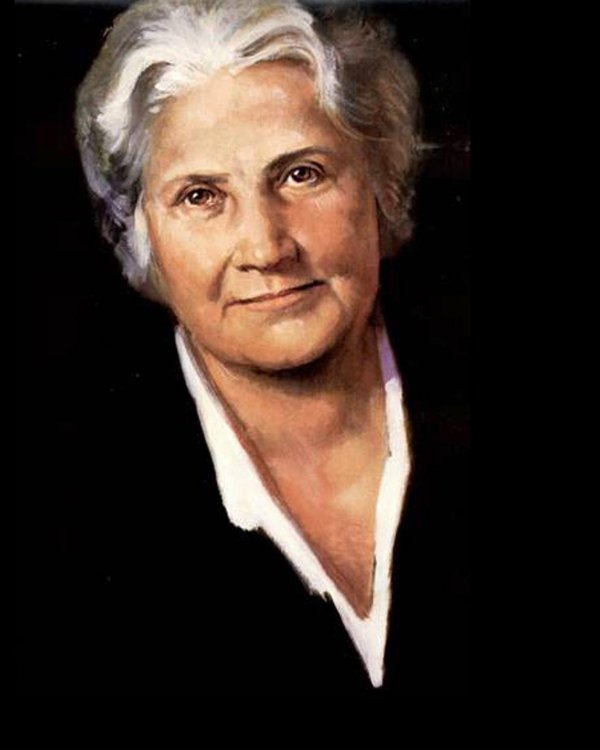
The Montessori Approach
Let’s dive into some of the key elements that make Montessori education such a unique learning experience.
A prepared environment
In a Montessori classroom, the environment isn’t just where learning happens – it’s a big part of how learning happens. Every material and activity is set up with care to help kids explore on their own and follow their interests. You’ll often hear it called a “prepared environment” because it’s thoughtfully put together by our trained educators to create the best space for kids to grow and learn at their own pace.
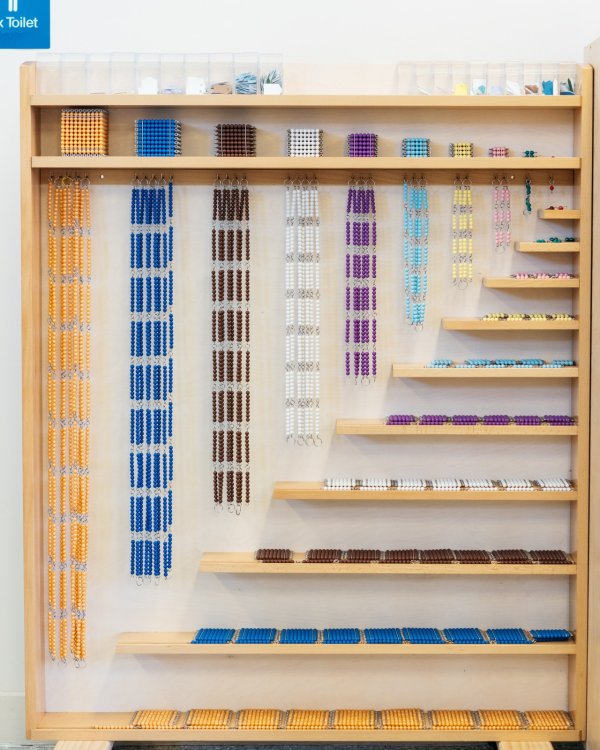
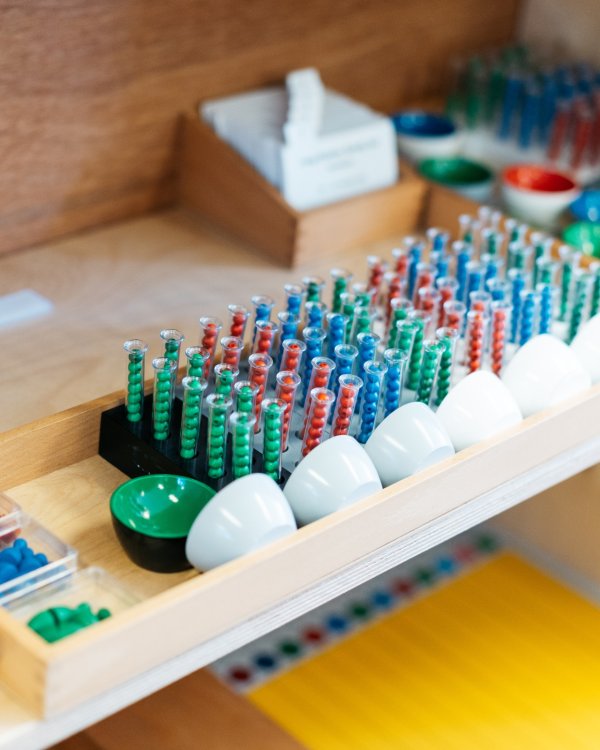
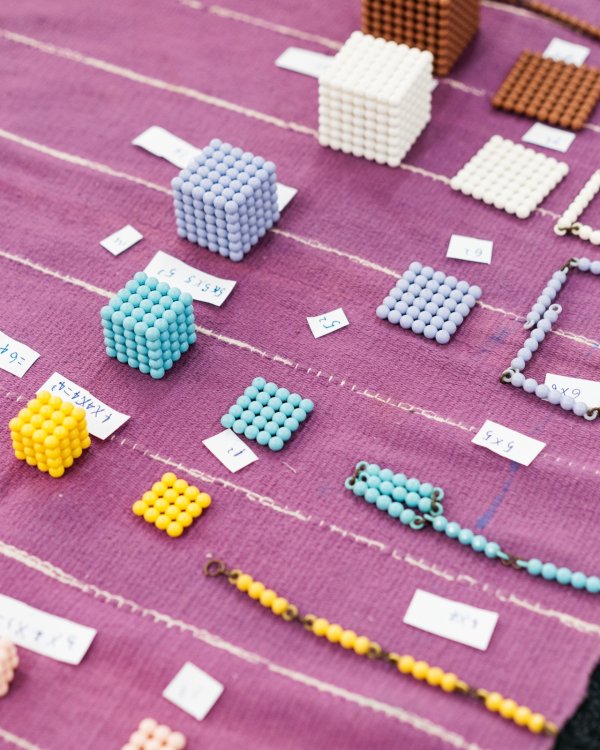
Child-led learning
Children who attend Montessori get a real say in what they learn and how they go about it. Their interests, pace and choices are at the core of the approach. Each day, they’re given a range of activities to choose from, and they’re encouraged to follow what grabs their attention. This kind of child-led learning builds independence and helps them develop a strong sense of ownership over what they’re doing.
This is what we call ‘freedom within limits’. Students aren’t just bouncing from one task to another on a tight schedule. Instead of short, fixed-time activities, they have time to focus, experiment, problem-solve and make discoveries at their own rhythm.
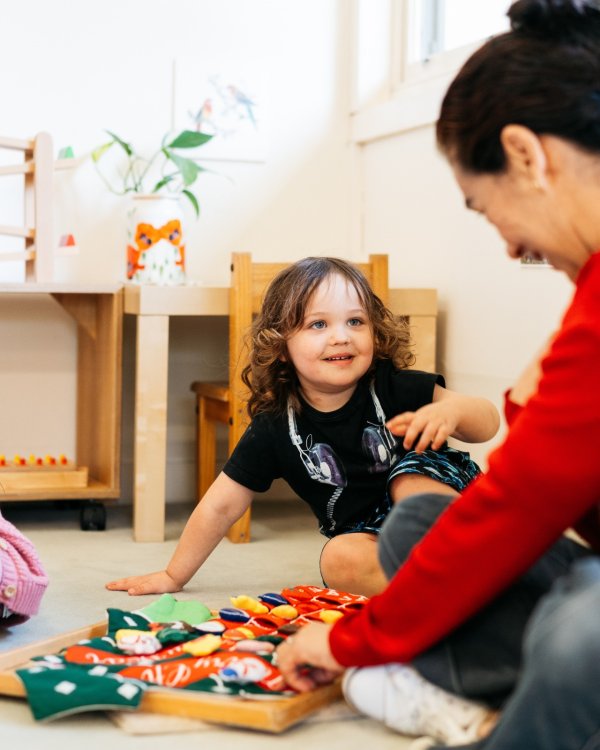
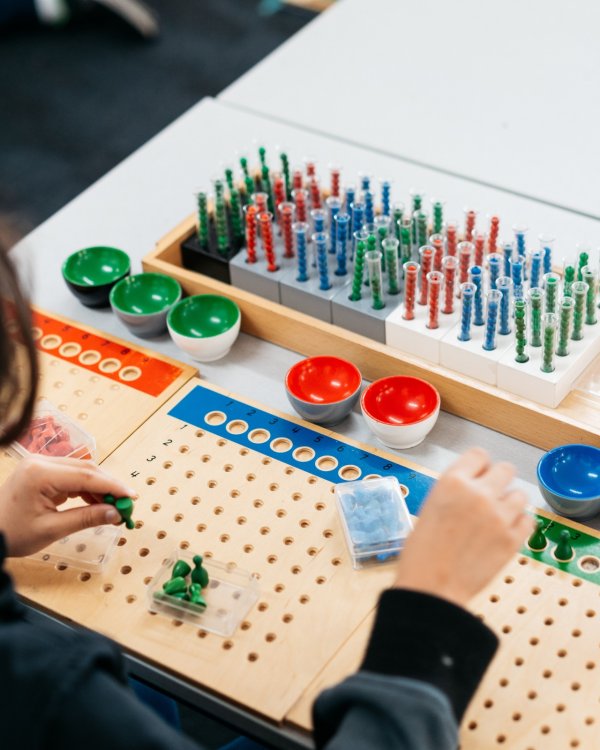
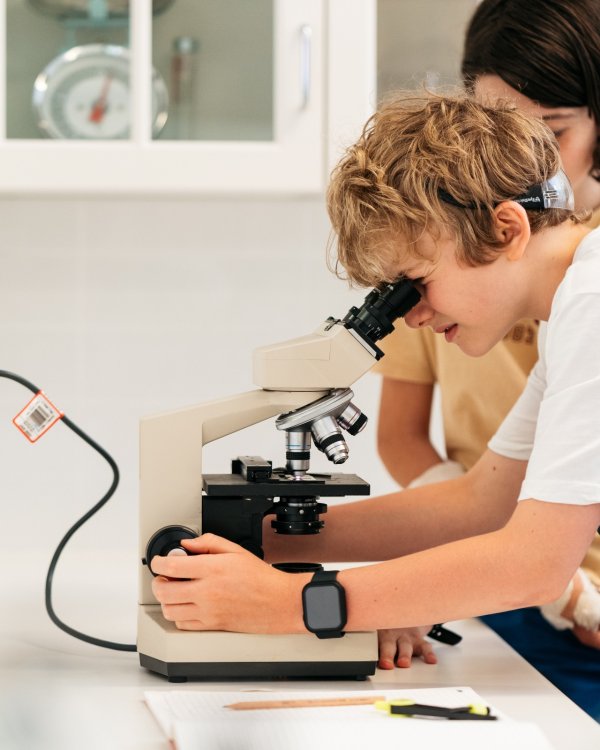
Individualised attention
One of the great things about the Montessori approach is it genuinely recognises that every child is different. Instead of a one-size-fits-all model, teachers take the time to get to know each child and tailor activities to match their individual needs and readiness. They’re given space to explore and learn in a way that makes sense for them.
Hands-on experience
Maria Montessori understood early on that when kids are fully engaged with their mind, body and hands, they’re not just learning facts, they’re growing into curious, capable people.
That’s why children learn best when they can touch, move and explore the things they’re working with. Whether they’re building, sorting, pouring or solving a puzzle, they’re not just keeping busy, they’re actively making sense of the world. These kinds of physical experiences help lay the foundation for deeper, more abstract thinking down the line.
Play and movement are also seen as essential parts of how children learn. Through play, they develop important life skills like problem-solving, resilience, collaboration and emotional regulation. The classroom is set up to support this, with materials that invite exploration and freedom to move around.
How is the Montessori method different from traditional education?
In most conventional classrooms, students are expected to learn the same thing at the same time, in the same way. This can be frustrating for children who either need more time or want to be challenged. Montessori flips this notion. Some children are drawn to numbers, others to words, building or nature – and the learning environment is set up to support those individual interests, while still meeting academic goals. Students are encouraged to follow their curiosity, develop their strengths and work at their own pace.
Instead of sitting and listening to a teacher at the front of the class, Montessori children are actively moving around, choosing work that interests them, and exploring materials hands-on. Teachers don’t give one big lesson to the whole class, they move around the room, checking in with students individually or in small groups. This means you’ll often see lots of different things going on at once. One child might be working with math beads while another is writing a story or observing insects.
Another unique aspect is the mixed-age classrooms. Kids learn not just from the teacher, but from each other. Older children model skills and behaviour for younger ones, while the younger kids pick up ideas just by watching and listening. All of this makes the Montessori classroom a really dynamic space where learning feels both natural and exciting.
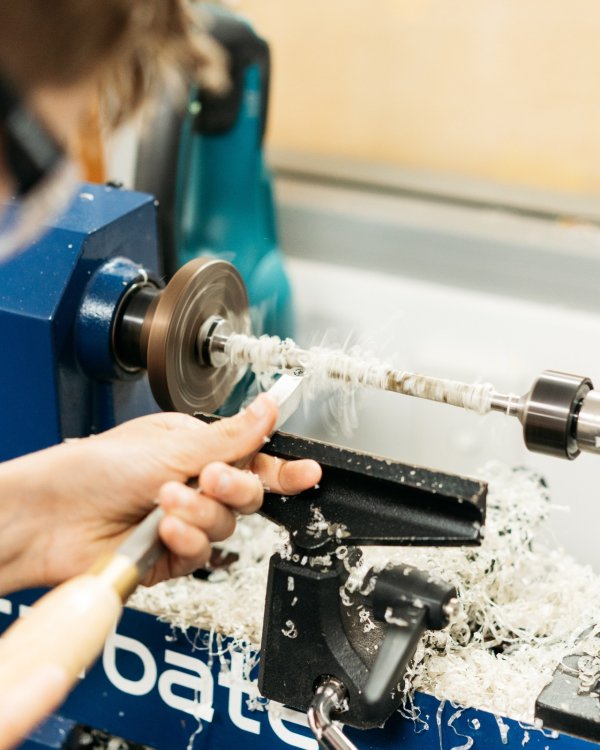
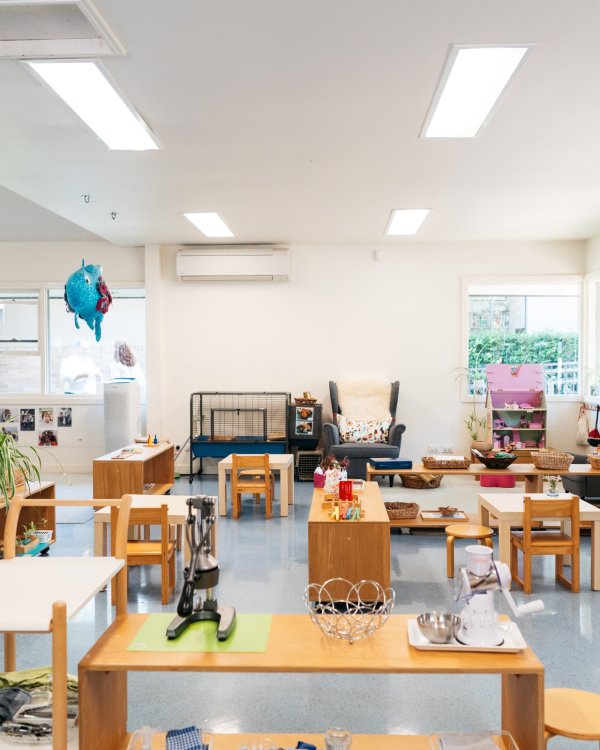
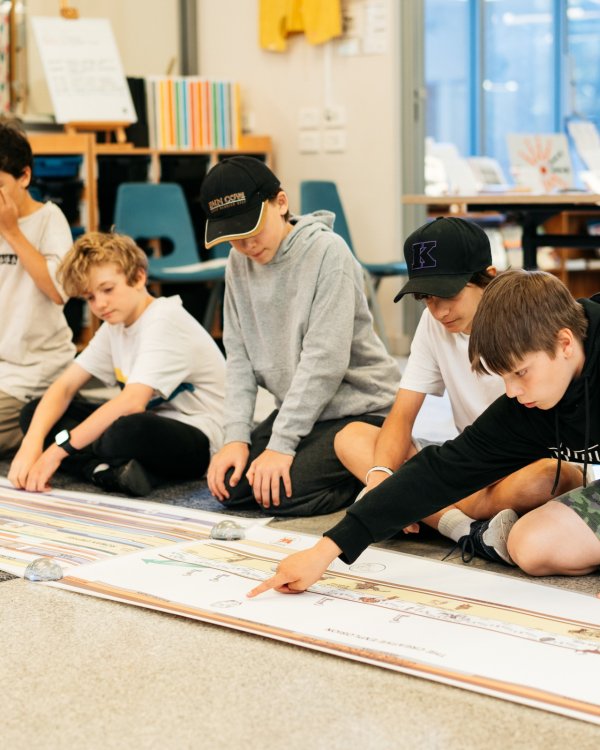
The benefits of Montessori education
The Montessori approach ensures children enjoy a holistic style of education, blending emotional, social, cognitive and physical development into one connected experience.
Brain development and cognitive growth
The first 6 years of a child’s life are a key time for brain development. Montessori really taps into this window by creating a calm, engaging space filled with activities that help children think, remember and solve problems. Things like sorting objects, pouring water, or arranging materials aren’t just practical, they also help fine-tune motor skills and build focus.
Emotional and social development
With different ages learning together, there’s a natural sense of community where older children mentor the younger ones, and everyone learns to collaborate. Group work, shared responsibilities and the everyday rhythm of the classroom, help children practise empathy, patience and communication. They also learn to manage their emotions and take responsibility for their actions, which sets them up for healthy relationships and social confidence as they grow.
Independent learning
A core goal of Montessori education is to foster independence. Kids are encouraged to choose their own activities and work through them at their own pace, which builds real confidence. The materials are often self-correcting, meaning children can spot and fix mistakes on their own. And that sense of accomplishment is a big motivator. Instead of chasing praise, they learn to feel proud of what they’ve achieved, which helps build resilience, curiosity and a strong sense of self-worth.
Preparing children for real-world success
One of the biggest strengths of the Montessori approach is how well it prepares children for life beyond the classroom. From a young age, kids are involved in practical, hands-on activities like cooking, cleaning and gardening. These aren’t just ‘chores’, they’re real-world experiences that help develop motor skills, responsibility and a strong sense of independence.
As children grow in this kind of environment, they don’t just absorb facts, they learn how to think critically, manage their time and take care of themselves. Montessori encourages children to be curious, self-motivated and confident in their abilities, which sets them up not just for academic success, but for navigating the ups and downs of real life.
At Northside Montessori, we aim to nurture well-rounded, resilient children who are excited to learn and feel ready to take on the world.
See the Montessori difference firsthand
The best way to get a feel for the unique Montessori environment is to see it all in action. You can observe classroom dynamics, the way teachers facilitate learning, our school’s atmosphere and how it aligns with your child’s needs.

